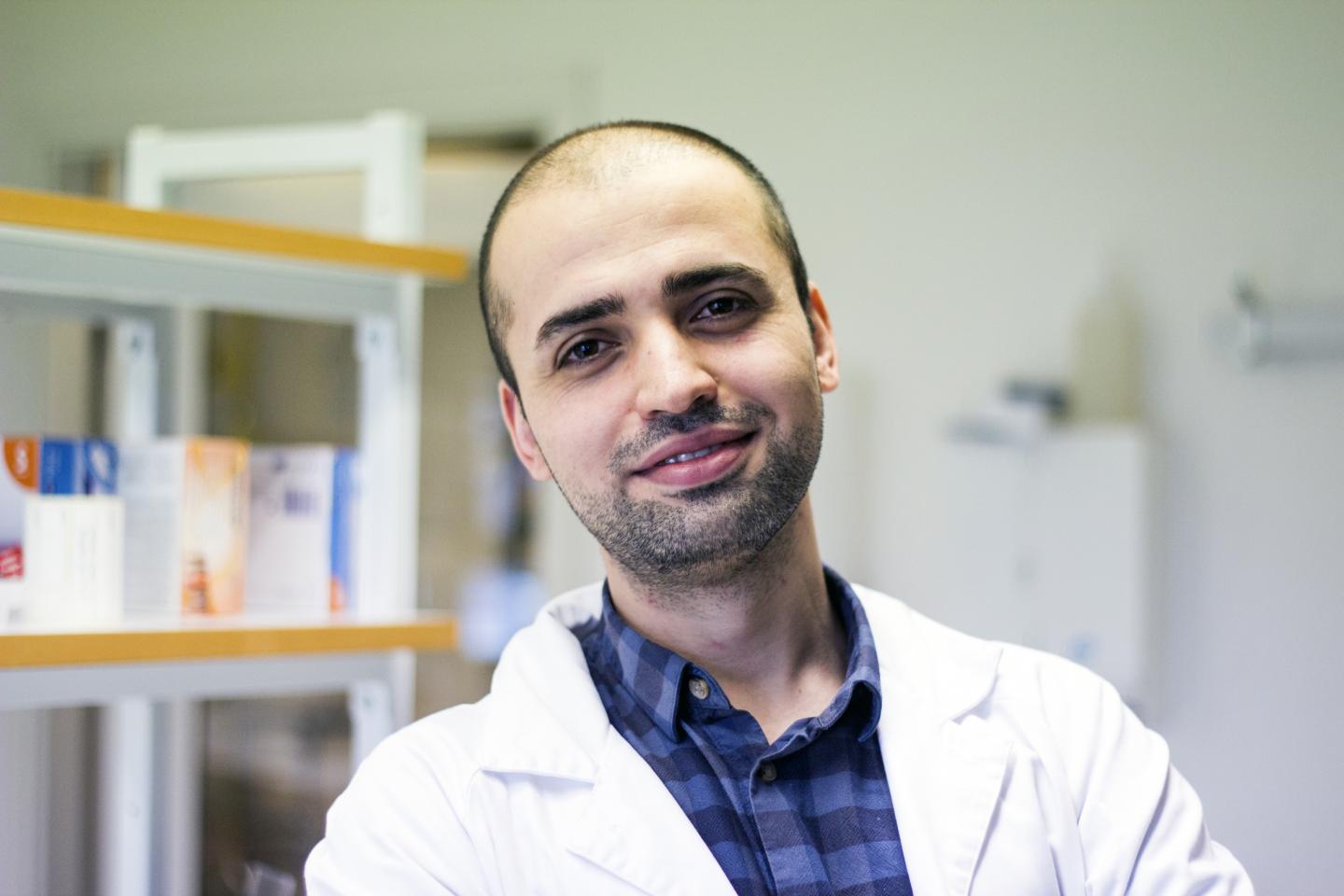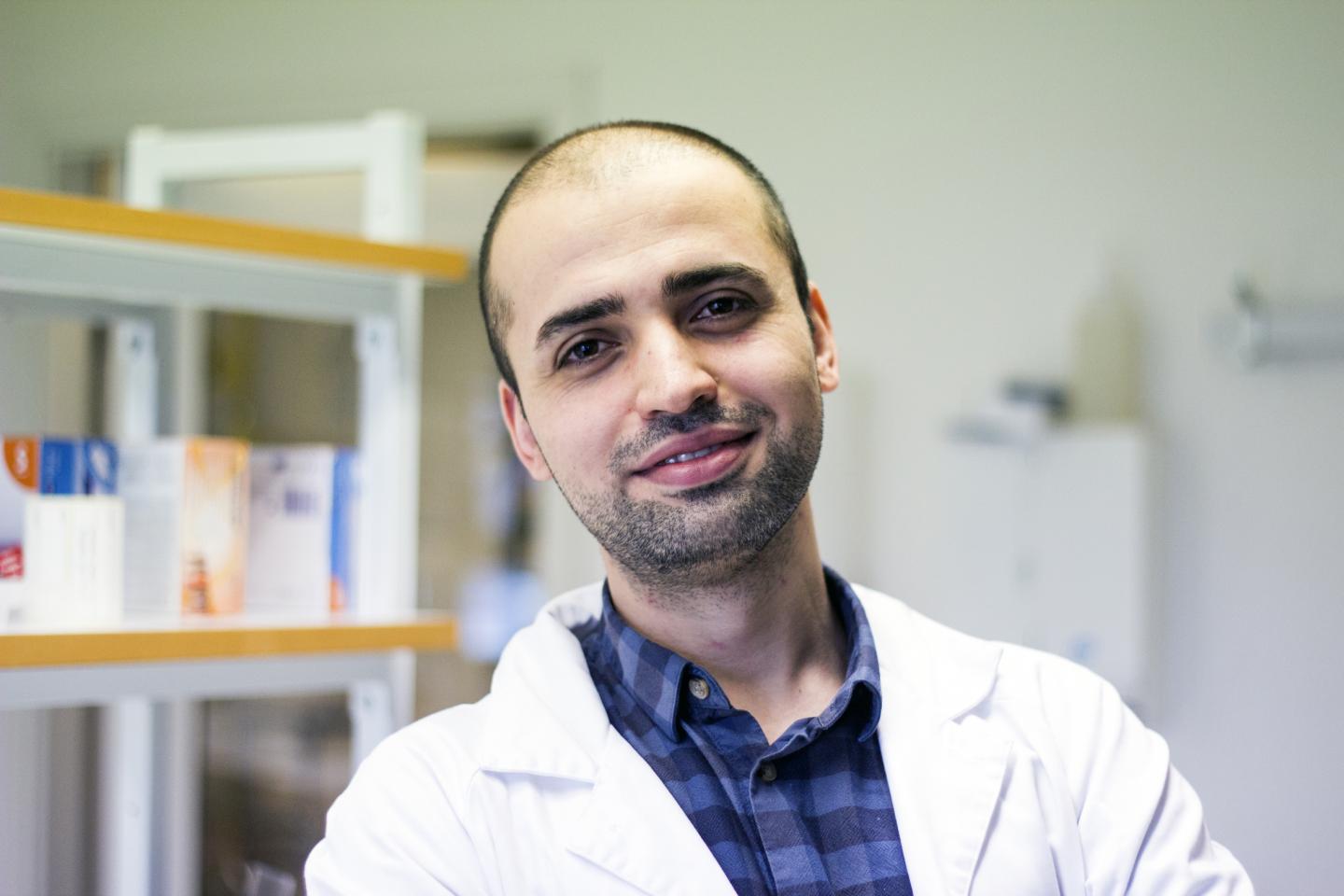
Credit: Elin Lindström Claessen
The relationship between head injuries suffered during contact sport and Alzheimer's disease is now being called into question thanks to research by the Sahlgrenska Academy, which has revealed that hockey players with multiple concussions probably have other injuries in their brains.
"There seem to be two separate conditions and pathologies involved here," says Pashtun Shahim, a doctor and researcher of neurology and physiology.
He himself has met the 28 sportspeople who were the subjects of the research, the majority of whom were elite ice hockey players from Sweden (both male and female).
All of them had experienced long-term problems after suffering concussion on multiple occasions, with complaints including sensitivity to noise and light, irritability, depression, difficulty concentrating and memory problems.
No Plaque Formation
"You can experience a lot of problems following a concussion, but these usually resolve within a few days or weeks; this group, though, experienced the problems for more than three months," Pashtun Shahim tells us.
The research indicates that there is a general change in the metabolism or processing of a protein called amyloid precursor protein (APP), from which Alzheimer-related beta-amyloids are excreted in the nerve-cell connections (synapses).
This effect on the amyloid protein could indicate that there is synaptic damage, even if it is not completely understood why. The research indicates that there is an element of inflammation involved also.
"At the same time, however, the results do not indicate that there is any plaque pathology like you would see in, for example, Alzheimer's, which is a very important discovery," says Pashtun Shahim.
The changes mainly affected the hockey players who had been suffering concussion-related complaints for a very long time, i.e. more than a year, and as such had not been able to return to the sport. The other players did not produce the same results, nor did the 19 healthy individuals who made up the control group.
Follow-Up Anticipated
Pashtun Shahim wanted to emphasize that the research was based on samples from living human beings and the fluid – CSF – found in the cavity of the brain, not on material from autopsies as was the case in previous studies, which were based on (for example) the brains of boxers who had passed away.
"These findings indicate that there is a connection between the long-term complaints suffered following a concussion and nerve cell damage – the first time that these two could be linked, with evidence found in living contact sport athletes. This means that we can follow up on these people in five or ten years' time and see how their problems have developed. There are currently no drugs on the market to combat the complaints, we merely treat them symptomatically, but the findings of the research may help us understand better the underlying pathophysiology and hopefully render in developing better therapeutics in the future," says Pashtun Shahim.
###
Link to the article: http://www.neurology.org/content/early/2017/03/10/WNL.0000000000003816.short?sid=9c3aa2d1-d045-4bb1-8522-c3a79dc87db8
Principal researchers: Pashtun Shahim; +1 314 938 7552; [email protected] and Henrik Zetterberg +46 (0)768 672 647; [email protected]
Media Contact
Pashtun Shahim
[email protected]
314-938-7552
@uniofgothenburg
http://www.gu.se/english
Original Source
http://sahlgrenska.gu.se/english/research/news-events/news-article//new-findings-from-research-into-multiple-concussions-in-hockey-players.cid1434335





